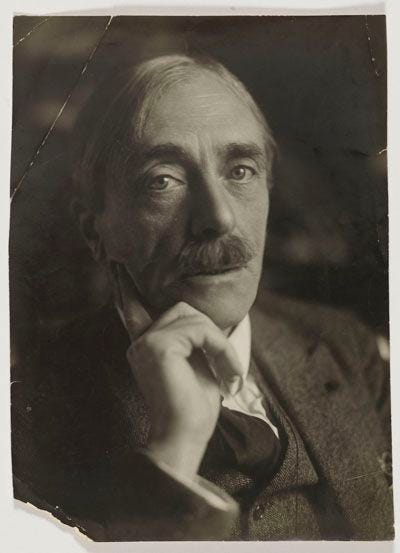Born Ambroise Paul Toussaint Jules Valéry on October 30, 1871, in the Mediterranean port town of Sète, France, Valéry spent his early years by the sea, where his father worked in customs.
Known as "the last of the Symbolists" and "the first post‑Symbolist," he blended musical language with intellectual precision, placing greater emphasis on the structure and form of poetry than on emotional spontaneity.
In 1892, during a thunderstorm in Genoa, Valéry experienced a profound inner crisis that led him to abandon poetry for nearly two decades. During this silence, he devoted himself to his private notebooks—deep meditations on consciousness, science, language, and the limits of thought.
He returned to poetry in 1917 with La Jeune Parque, a 512-line alexandrine tour de force that immediately brought him critical acclaim.
His poems, especially La Jeune Parque and Le Cimetière marin (The Graveyard by the Sea), are now regarded as some of the most important works of 20th-century French literature.
Beyond poetry, Valéry filled more than 28,000 notebook pages, known as the Cahiers, where he pursued philosophical, scientific, and aesthetic investigations—many of which remain central to modern French intellectual history.
In 1925, he was elected to the Académie française, becoming one of France’s leading public intellectuals. He lectured across Europe, represented France at the League of Nations, and founded the Collège International de Cannes in 1931.
Though nominated twelve times for the Nobel Prize in Literature, he passed away in July 1945 before the prize could be awarded—many believe he was on the cusp of receiving it.
During World War II, Valéry quietly distanced himself from the Vichy regime and was associated with the literary wing of the French Resistance.
One of his most quoted lines appears in Le Cimetière marin:
“Le vent se lève… il faut tenter de vivre !”
“The wind rises… We must try to live!”
A line that would echo across generations—and find new life in Hayao Miyazaki’s film The Wind Rises.
🕊️ Epigraph by Pierre Corneille (from Polyeucte):
« Le Ciel a-t-il formé cet amas de merveilles / Pour la demeure d’un serpent ? »
“Has Heaven formed this heap of wonders
Only to house a serpent?”
🌒 First Stanza of La Jeune Parque (Translated):
Who weeps there, unless it is the simple wind,
Alone at this hour with ultimate diamonds?
…But who weeps,
So close to myself,
In the very moment of weeping?







